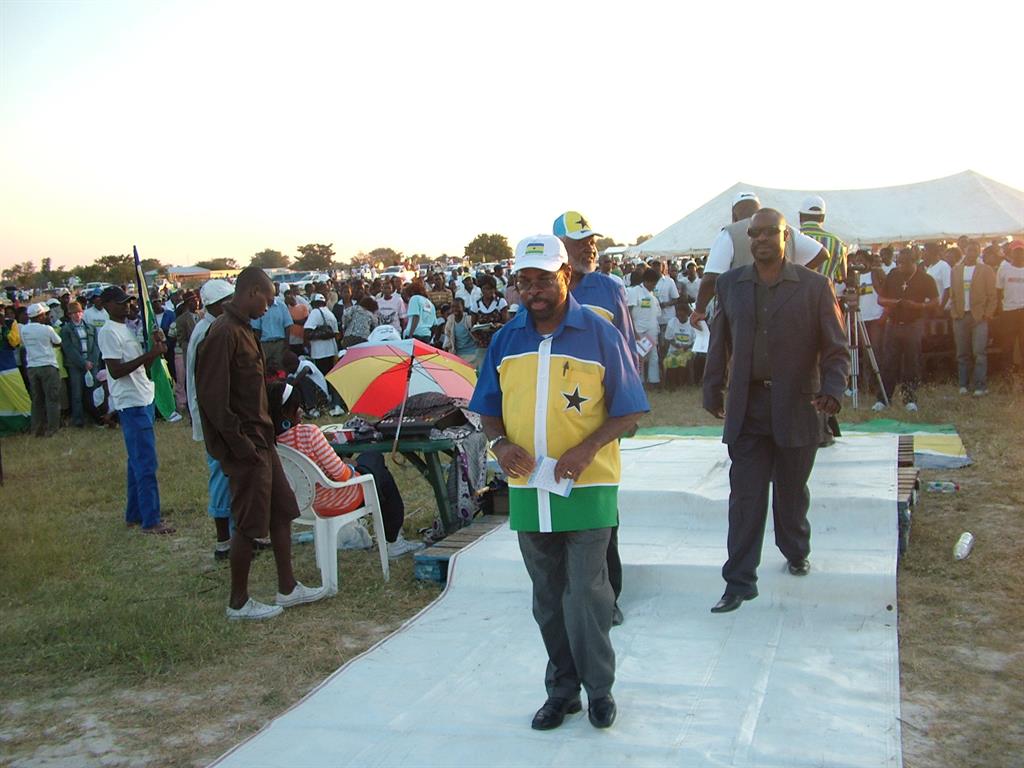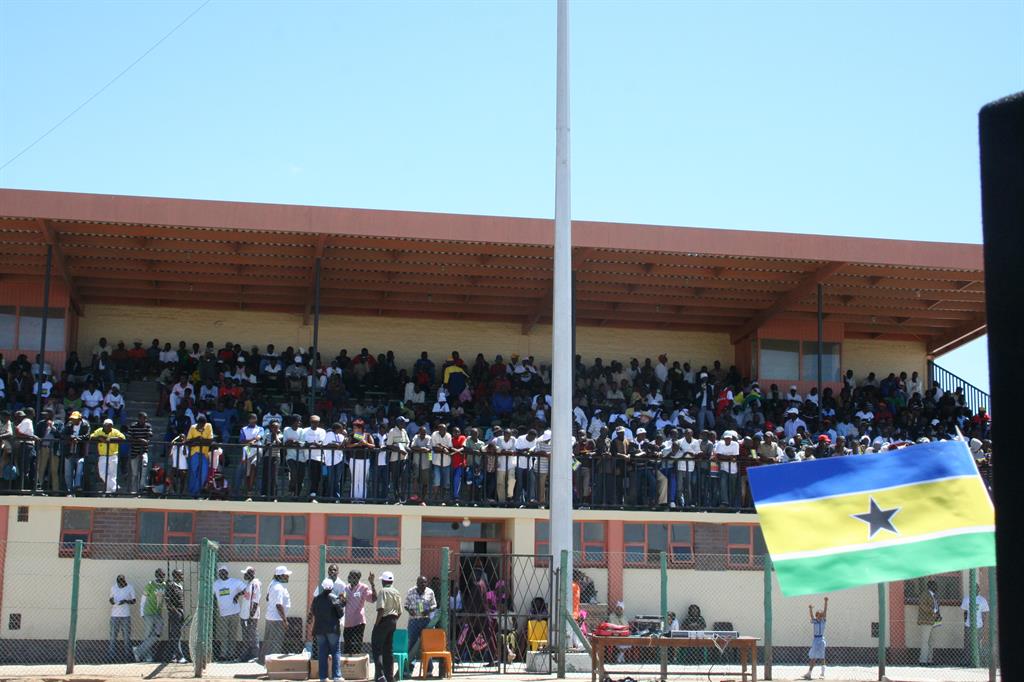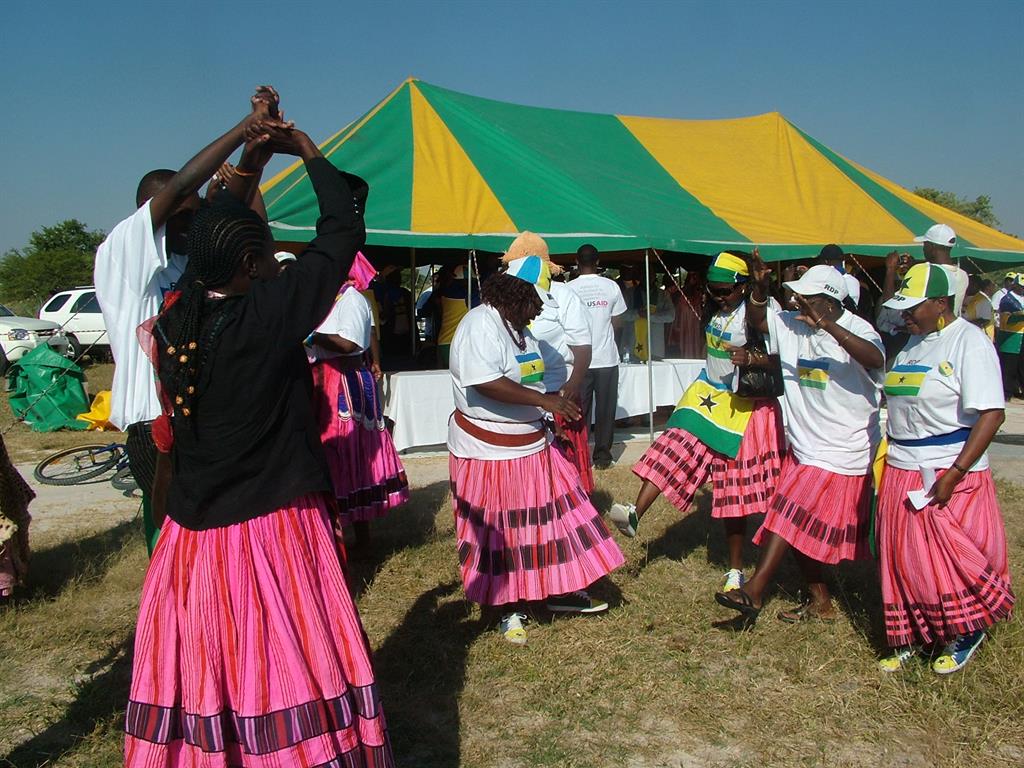RDP: From bulldog to puppy
When former Swapo cadres coalesced around the late Hidipo Hamutenya to form the RDP in 2007, they could never have predicted the political purgatory that would follow.
The Rally for Democracy and Progress (RDP) is a case study of a once promising party whose formation was heralded as the beginning of the end of Swapo – a nemesis from whose womb the new party crawled as a promising infant.
If the political turf was the biblical Garden of Eden, Swapo would be Adam from whose rib the RDP, the proverbial Eve, emerged.
Swapo, freshly freed from the grip of its no-nonsense founding president Sam Nujoma, was being dragged into the doldrums.
The ruling party, now led by Hifikepunye Pohamba at the time, was shaken. Unlike liberals who deserted the party at the turn of the century to form the Congress of Democrats (CoD), the RDP was an exodus of revered freedom fighters who deserted their political home because their idol, Hidipo Hamutenya, was being mistreated in a party he had served with unquestionable commitment.
Hamutenya was no Ben Ulenga, whose political pinnacle was securing a diplomatic posting to the UK. Hamutenya was Nujoma's blue-eyed boy, who switched cabinet posts enviously.
In the build-up to the landmark Swapo extraordinary congress of 2004, convened with the sole purpose of finding a replacement for Nujoma who was letting go of the state presidency, Hamutenya threw his name into the hat.
His defeat at the hands of Pohamba, preceded by his sacking from cabinet by Nujoma a few days before the congress, left a sour taste in the mouth of his army of supporters.
It was these events that midwifed the conception of RDP three years later, in 2007.
The party formally announced its existence by participating in the 2009 general election, with commentators as sure as the dawn that the party would break Swapo's two-thirds majority.
In unprecedented fashion, Swapo ruthlessly trounced RDP and Hamutenya. Out of the 72 seats in the National Assembly, Swapo took 54 for itself. With eight seats, RDP didn't make double digits. Taking 75% of the presidential vote, Pohamba taught Hamutenya - his friend in person and his groomsman when he wedded his wife Penexupifo – an indelible lesson as the latter only salvaged 10%.
As thoroughly beaten as it was, RDP became the official opposition – a status it enjoyed for only five years before DTA, now christened PDM, eclipsed it.
With the party only retaining three seats in the National Assembly in 2014, the rank and file started firing unsavoury salvos at Hamutenya. Underground work to remove him as president also swelled, but the Lincoln University political science alumnus smelled danger and threw in the towel voluntarily.
The prodigal son that is Hamutenya returned to Swapo in August 2015 with his family, to ululations of former friends and foes.
Hamutenya's departure opened up a Pandora's Box of highly charged leadership contention in the party – and the wounds of that battle are more evident now than they ever were.
With this series of events, coupled with the emergence of internal strife, the whirlwind that was the RDP started calming down.
'Cold outside Swapo'
It was, after all, Hamutenya who famously coined the phrase “it is cold outside Swapo” when Ulenga left the party to form CoD in 1999.
Twelve years after pomp and fanfare characterised RDP's formation, a sorry tale of self-implosion succinctly sums up the RDP of today.
Under the leadership of Mike Kavekotora as president, the party is rocked by factionalism which threatens its performance in next month's election.
Kavekotora faces internal rebellion from particularly the supporters of his new nemesis Kandindima Nehova, whose political lust is as insatiable as Kavekotora's own.
Nehova's backers – including the party's youth league - do not recognise the election of Kavekotora as president in June this year, nor do they accept results of the electoral college held in Rundu this month, where Kavekotora was again endorsed as the man to take on Swapo's Hage Geingob and the entire gang seeking residence at No. 1 Engelberg Street, Auasblick.
Institute for Public Policy Research (IPPR) executive director Graham Hopwood said this week that essentially, the RDP was a vehicle for Hidipo Hamutenya's leadership ambitions.
“With his return to Swapo and subsequent passing, the raison d'être for the RDP has largely disappeared.
“The party doesn't appear to have been able to reinvent itself and is riven with internal disputes. They might still get into parliament, but with only one or two seats,” Hopwood said.
In July, the RDP devised a strategy to reclaim its glory days as a political force. It is composed of key points which the party has identified as its weaknesses, where it needs to improve and what to rebuild or get rid of among others, Nampa reported.
Political commentator Rakkel Andreas says Swapo has retained its strongholds, and the weakness of the RDP is that most of its members are former ruling party members.
“This resulted in low morale, leading to the infighting we have all been witnessing.
“The party was formed as an alternative to Swapo; it never clearly crafted its own ideology and identity, so it was always perceived as a political faction.
“To 'save' the party, for lack of better word, will require that it invests in communicating its ideology very well and setting itself apart as an opposition party with clear ideals and a better vision, compared to the other parties,” Andreas says.
Reactionary
She says the disappointing fact about Namibian political parties is that they tend to be reactionary towards Swapo.
“You will pick it up in their language, it is not often 'we will do this', instead it tends to be 'Swapo did not do this and so we will do this'.
“When you speak like that, your first acknowledgement is Swapo and after that no one listens anymore, because it sounds like you are just complaining.
“A word of advice is that they start with what they stand for, and as a matter of conversation, point out where the current ruling party has fallen short,” Andreas adds.
TOIVO NDJEBELA AND ASHLEY SMITH
If the political turf was the biblical Garden of Eden, Swapo would be Adam from whose rib the RDP, the proverbial Eve, emerged.
Swapo, freshly freed from the grip of its no-nonsense founding president Sam Nujoma, was being dragged into the doldrums.
The ruling party, now led by Hifikepunye Pohamba at the time, was shaken. Unlike liberals who deserted the party at the turn of the century to form the Congress of Democrats (CoD), the RDP was an exodus of revered freedom fighters who deserted their political home because their idol, Hidipo Hamutenya, was being mistreated in a party he had served with unquestionable commitment.
Hamutenya was no Ben Ulenga, whose political pinnacle was securing a diplomatic posting to the UK. Hamutenya was Nujoma's blue-eyed boy, who switched cabinet posts enviously.
In the build-up to the landmark Swapo extraordinary congress of 2004, convened with the sole purpose of finding a replacement for Nujoma who was letting go of the state presidency, Hamutenya threw his name into the hat.
His defeat at the hands of Pohamba, preceded by his sacking from cabinet by Nujoma a few days before the congress, left a sour taste in the mouth of his army of supporters.
It was these events that midwifed the conception of RDP three years later, in 2007.
The party formally announced its existence by participating in the 2009 general election, with commentators as sure as the dawn that the party would break Swapo's two-thirds majority.
In unprecedented fashion, Swapo ruthlessly trounced RDP and Hamutenya. Out of the 72 seats in the National Assembly, Swapo took 54 for itself. With eight seats, RDP didn't make double digits. Taking 75% of the presidential vote, Pohamba taught Hamutenya - his friend in person and his groomsman when he wedded his wife Penexupifo – an indelible lesson as the latter only salvaged 10%.
As thoroughly beaten as it was, RDP became the official opposition – a status it enjoyed for only five years before DTA, now christened PDM, eclipsed it.
With the party only retaining three seats in the National Assembly in 2014, the rank and file started firing unsavoury salvos at Hamutenya. Underground work to remove him as president also swelled, but the Lincoln University political science alumnus smelled danger and threw in the towel voluntarily.
The prodigal son that is Hamutenya returned to Swapo in August 2015 with his family, to ululations of former friends and foes.
Hamutenya's departure opened up a Pandora's Box of highly charged leadership contention in the party – and the wounds of that battle are more evident now than they ever were.
With this series of events, coupled with the emergence of internal strife, the whirlwind that was the RDP started calming down.
'Cold outside Swapo'
It was, after all, Hamutenya who famously coined the phrase “it is cold outside Swapo” when Ulenga left the party to form CoD in 1999.
Twelve years after pomp and fanfare characterised RDP's formation, a sorry tale of self-implosion succinctly sums up the RDP of today.
Under the leadership of Mike Kavekotora as president, the party is rocked by factionalism which threatens its performance in next month's election.
Kavekotora faces internal rebellion from particularly the supporters of his new nemesis Kandindima Nehova, whose political lust is as insatiable as Kavekotora's own.
Nehova's backers – including the party's youth league - do not recognise the election of Kavekotora as president in June this year, nor do they accept results of the electoral college held in Rundu this month, where Kavekotora was again endorsed as the man to take on Swapo's Hage Geingob and the entire gang seeking residence at No. 1 Engelberg Street, Auasblick.
Institute for Public Policy Research (IPPR) executive director Graham Hopwood said this week that essentially, the RDP was a vehicle for Hidipo Hamutenya's leadership ambitions.
“With his return to Swapo and subsequent passing, the raison d'être for the RDP has largely disappeared.
“The party doesn't appear to have been able to reinvent itself and is riven with internal disputes. They might still get into parliament, but with only one or two seats,” Hopwood said.
In July, the RDP devised a strategy to reclaim its glory days as a political force. It is composed of key points which the party has identified as its weaknesses, where it needs to improve and what to rebuild or get rid of among others, Nampa reported.
Political commentator Rakkel Andreas says Swapo has retained its strongholds, and the weakness of the RDP is that most of its members are former ruling party members.
“This resulted in low morale, leading to the infighting we have all been witnessing.
“The party was formed as an alternative to Swapo; it never clearly crafted its own ideology and identity, so it was always perceived as a political faction.
“To 'save' the party, for lack of better word, will require that it invests in communicating its ideology very well and setting itself apart as an opposition party with clear ideals and a better vision, compared to the other parties,” Andreas says.
Reactionary
She says the disappointing fact about Namibian political parties is that they tend to be reactionary towards Swapo.
“You will pick it up in their language, it is not often 'we will do this', instead it tends to be 'Swapo did not do this and so we will do this'.
“When you speak like that, your first acknowledgement is Swapo and after that no one listens anymore, because it sounds like you are just complaining.
“A word of advice is that they start with what they stand for, and as a matter of conversation, point out where the current ruling party has fallen short,” Andreas adds.
TOIVO NDJEBELA AND ASHLEY SMITH






Comments
Namibian Sun
No comments have been left on this article